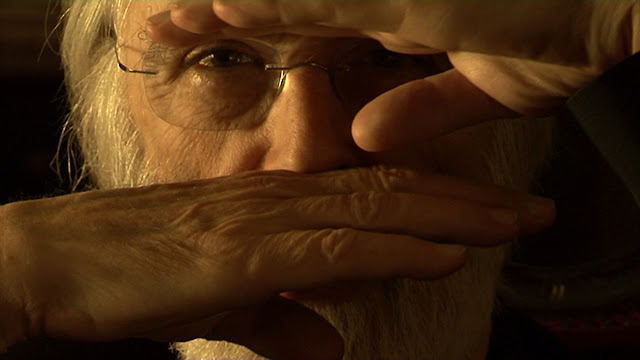Le Temps du Loup by Austrian director Michael Haneke came out in 2003. Haneke had written the sceenplay – featuring a group of wanderers stranded in an unnamed countryside after an unexplained apocalypse – about a decade earlier. The great Isabelle Huppert was prepared to play the lead, and tried along with Haneke throughout the 90s to find funding. The subject of social breakdown after a massive man-made disaster failed to fly, despite two celebrity advocates. Then, after their 2001 collaboration on the much-honored Piano Teacher (and, not coincidentally, after large-scale terrorist attacks inside the United States) the actress/director team was able to secure enough money to make Le Temps du Loup.
Personally, I found it successful – successful meaning that it haunted my thoughts in the same complicated and long-lasting way Haneke's other films have done.
In release, the movie completely flopped.
Haneke used his star in an effective yet eccentric and anti-seductive manner. As the sudden widow with no resources available to her (while yet remaining responsible for her two children) Isabelle Huppert might have given a Meryl-Streep-style expressive performance. In that case, the whole film could have been shot like an extension of her own tormented but heroic point of view (something Hollywood is exceptionally good at). As Haneke shot Le Temps du Loup in reality, Isabelle Huppert was always and only viewable from the outside, and usually from a distance. Her character had no leisure to express a sympathy-engendering subjective viewpoint, being already more than fully occupied with bewilderment and exhaustion.
In a filmed interview, Isabelle Huppert made an unexpected point – that she never thought of the story as one that "might" happen in some unlucky future. Given the plot's relentless focus on the daily pursuit of basic necessities (clean water, medicine, food, shelter, safety) in a world of crowding and lawlessness and scarcity, she saw a simple description of the way "most of the people on earth" are already living.
She and Haneke agreed on approaching this particular acting job (she has made nearly a hundred movies) "very modestly" – that she would not portray one special individual picked out by the camera among a group of losers, but would be only one among many, part of an almost indistinguishable crowd of the lost. I suspect it was this lack of the classic "viewpoint character" that prevented the film from finding an immediate audience. No matter. As a work of art it will be valued in the future as proof that some few creative people at the beginning of the 21st century did not turn their backs on the biggest and most obvious truth that surrounded them.






